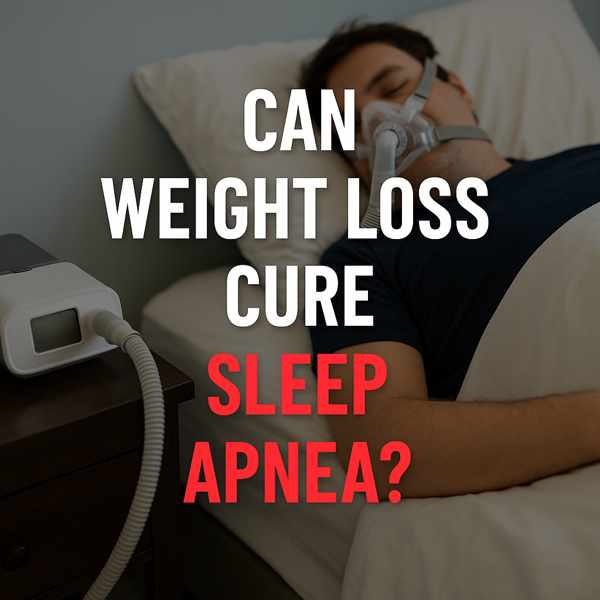
One of the most discussed connections to sleep apnea is excess weight — leading many to ask: can weight loss cure sleep apnea?
While not always a complete cure, weight loss often reduces the severity of sleep apnea significantly.
Understanding Sleep Apnea
Sleep apnea occurs when breathing repeatedly stops and starts during sleep.
Common symptoms include:
- Often reported by sleep partners
- Interrupted breathing patterns
- Difficulty staying alert during the day
- Signs of disrupted oxygen flow
How Obesity Impacts Breathing
Fat deposits in the throat may narrow the airway, making it more likely to collapse.
Key risk factors include:
- High BMI (Body Mass Index)
- Fat around the neck and jawline
- Can contribute to airway collapse
Does Losing Weight Help OSA?
In many cases, losing weight can dramatically improve sleep apnea symptoms.
Possible benefits of weight loss:
- Less airway obstruction
- Reduced risk of waking up during sleep
- More natural treatment options
- Improved sleep quality and energy
However, weight loss may not cure sleep apnea in all cases — especially if anatomical issues or severe OSA are present.
Realistic Expectations
Even modest weight loss can have a big impact.
Tips:
- Focus on progress, not perfection
- Combine diet and exercise
- Notice snoring, energy, and daytime fatigue improvements
Lifestyle Changes That Help
Effective strategies:
- Limit sugar and processed carbs
- Exercise regularly (cardio + strength)
- Helps open up the airway naturally
- Avoid alcohol and sedatives
Working with a nutritionist or sleep specialist can provide more personalized support.
What to Do if Symptoms Persist
If symptoms continue, talk to your doctor about other options such as:
- Keeps airways open at night
- Oral appliances
- To remove excess tissue or reposition structures
Is Weight Loss the Answer?
So, can weight loss cure sleep apnea? In cpap weight gain many cases, it can improve the condition.
Talk to your healthcare provider, make informed decisions, and take proactive steps toward better health and rest.